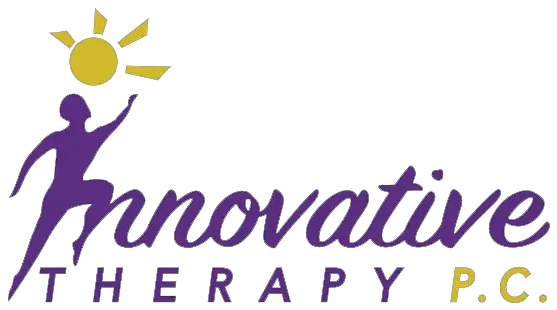Comprehensive Shoulder Pain Treatment in Dallas, TX for Effective Pain Relief

Shoulder pain can limit movement and disrupt daily activities. Whether caused by an injury, arthritis, or repetitive strain, getting expert treatment is essential. At Innovative Therapy P.C., we provide advanced shoulder pain relief solutions in Dallas, TX, using nonsurgical therapies, rehabilitation programs, and specialized treatments tailored to your condition.
Understanding the Causes of Shoulder Pain in Dallas
Common Shoulder Pain Causes and Risk Factors
Shoulder pain can result from various musculoskeletal issues and joint conditions. Some of the most common causes include:
- Rotator Cuff Injuries – Tears or inflammation in the rotator cuff tendons lead to weakness and pain.
- Frozen Shoulder (Adhesive Capsulitis) – Stiffness and limited motion due to inflammation and scar tissue.
- Shoulder Arthritis (Osteoarthritis & Rheumatoid Arthritis) – The breakdown of cartilage in the shoulder joint causes pain and stiffness.
- Shoulder Impingement Syndrome – Tendons become compressed between the bones, leading to inflammation.
- Tendonitis & Bursitis – Overuse of the shoulder joint causes swelling in the tendons and bursa sacs.
- Fractures & Dislocations – Direct trauma or falls can result in clavicle fractures, shoulder dislocations, or collarbone injuries.
Understanding the cause of your shoulder pain is crucial for effective treatment and long-term recovery.
The Role of Postural Correction in Shoulder Pain Prevention
Poor posture is a major contributor to chronic shoulder pain. Sitting for long hours, slouching, or improper positioning while working can place excess strain on the shoulder joints, rotator cuff, and neck muscles.
At Innovative Therapy P.C., we focus on postural correction therapy to help patients maintain proper alignment and prevent recurring shoulder pain. Our experts guide patients on ergonomic workplace adjustments, correct sitting and standing positions, and sleeping postures that support shoulder health.
Simple modifications, such as adjusting desk height, using lumbar support, and maintaining a neutral shoulder position, can significantly reduce discomfort and prevent long-term joint degeneration. Whether your pain is due to an injury or daily posture habits, our therapy programs can help restore natural movement and reduce stress on the shoulder joint.
Advanced Diagnostic Techniques for Shoulder Pain Treatment in Dallas
Advanced Diagnostic Techniques for Shoulder Pain Treatment in Dallas
An accurate diagnosis is essential for effective treatment. At Innovative Therapy P.C., we use a multistep evaluation process to determine the underlying issue:
- Detailed Medical History Review – Understanding previous injuries and pain patterns.
- Physical Examination – Assessing shoulder mobility, range of motion, and joint stability.
- Imaging Tests (X-ray, MRI, Ultrasound) – Identifying rotator cuff tears, bone fractures, and soft tissue injuries.
- Postural & Biomechanical Assessment – Observing shoulder movement and functional limitations.
This comprehensive approach ensures that each patient receives a personalized treatment plan tailored to their condition.

How Strength Training Improves Shoulder Stability and Mobility in Dallas, TX
Weak shoulder muscles can increase the risk of rotator cuff tears, impingement syndrome, and frozen shoulder injuries. A strong, stable shoulder joint is essential for pain-free movement and injury prevention. At Innovative Therapy P.C., we incorporate shoulder-strengthening exercises into our physical therapy programs to improve joint support, flexibility, and range of motion.
Exercises like resistance band rotations, scapular stabilization drills, and controlled weightlifting movements target the deltoids, trapezius, and rotator cuff muscles, reducing excess strain on the joint. Strength training also enhances blood circulation to the affected area, accelerating healing and reducing inflammation. Whether recovering from an injury or looking to prevent shoulder pain, our Dallas-based specialists create customized training programs to fit your specific needs.
Why Choose Innovative Therapy P.C. for Shoulder Pain Treatment in Dallas?
Leading Shoulder Pain Specialists in Texas
Choosing the right provider is crucial for long-term relief and recovery. Here’s why patients trust us:
- Experienced Physical Therapists & Pain Specialists – Years of experience treating shoulder injuries, arthritis, and sports-related conditions.
- Latest Diagnostic Technology – Ensuring precise assessments and accurate diagnoses.
- Customized Treatment Plans – Individualized therapy sessions and rehabilitation programs.
- Minimally Invasive Techniques – Prioritizing nonsurgical options for shoulder pain relief.
- Compassionate, Patient-Centered Care – Focusing on holistic healing and long-term mobility.
We are committed to helping you move freely, pain-free, and with confidence.
Our Proven 5-Step Process for Shoulder Pain Recovery in Dallas
Step 1 – In-Depth Consultation & Shoulder Pain Assessment
We begin with a detailed evaluation to identify the root cause of your pain.
Step 2 – Personalized Shoulder Pain Treatment Plan Development
Our specialists create a customized recovery plan based on your diagnosis and pain level.he root cause of your pain.
Step 3 – Targeted Pain Management & Rehabilitation Therapy
We integrate manual therapy, pain relief techniques, and strengthening exercises to promote healing.
Step 4 – Progressive Recovery & Functional Improvement
Ongoing therapy sessions ensure flexibility, mobility, and muscle strength restoration.
Step 5 – Long-Term Prevention & Shoulder Health Maintenance
We provide postural correction, exercise routines, and ergonomic advice to prevent future pain.
The Connection Between Shoulder Pain and Neck Tension
Nerve compression, poor posture, and overuse injuries can contribute to tension buildup in the upper trapezius and cervical spine, worsening shoulder pain. At Innovative Therapy P.C., our specialists address shoulder and neck dysfunctions using a combination of manual therapy, soft tissue mobilization, and targeted stretching techniques.
Neck alignment therapy, gentle traction, and myofascial release help reduce pressure on nerves and improve shoulder function.
Treating both areas simultaneously ensures comprehensive pain relief and long-term mobility improvements. Suppose you’re experiencing shoulder pain along with neck tightness. In that case, our Dallas physical therapy experts can provide the right treatment to restore comfort and flexibility.
Nonsurgical Shoulder Pain Treatments in Dallas for Lasting Relief
Personalized Physical Therapy Programs for Shoulder Pain Relief
Physical therapy is one of the most effective nonsurgical treatments for shoulder pain relief. Our therapy sessions focus on:
- Strengthening Rotator Cuff Muscles – Reducing strain on the shoulder joint.
- Manual Therapy & Joint Mobilization – Hands-on techniques to improve mobility and circulation.
- Stretching & Posture Correction – Addressing muscle imbalances and joint stiffness.
- Pain Management Modalities – Ultrasound, electrical stimulation, and heat/cold therapy for inflammation reduction.
Advanced Pain Management Solutions for Shoulder Joint Conditions
For patients needing immediate relief, we offer evidence-based pain management solutions, including:
- Corticosteroid Injections – Reducing joint inflammation and swelling.
- Trigger Point Therapy – Relieving muscle knots and nerve tension.
- Shockwave Therapy – Stimulating natural healing in soft tissues.
These treatments help patients avoid surgery while effectively managing shoulder discomfort.
Patient Success Stories from Dallas
Shoulder Pain Relief Near Me – Find Trusted Treatment in Dallas, TX
Innovative Therapy P.C. is your trusted choice in Dallas, TX, if you’re searching for shoulder pain specialists near me. Our expert team provides comprehensive care for rotator cuff injuries, frozen shoulder, arthritis, and more.
📞 Call Now to schedule your consultation and take the first step toward lasting shoulder pain relief!
📅 Book Your Appointment Today – Let’s restore your mobility and comfort!
FAQs About Shoulder Pain Treatment in Dallas
What are the most common causes of chronic shoulder pain?
Shoulder pain can result from rotator cuff tears, tendonitis, bursitis, arthritis, or previous injuries. Early treatment is key.
How long does it take to recover from shoulder pain with physical therapy?
Most patients experience pain relief and improved mobility within a few weeks, depending on the severity of their condition.
Are corticosteroid injections safe for shoulder pain?
Yes, corticosteroid injections are a safe, effective way to reduce joint inflammation and nerve pain.
Can I avoid shoulder surgery with physical therapy?
In many cases, nonsurgical treatments like physical therapy, pain management, and shoulder mobility exercises can provide long-term relief.
What exercises help strengthen the shoulder and prevent pain?
Low-impact exercises like shoulder rolls, wall push-ups, and resistance band stretches help improve shoulder function and stability.
What is the best painkiller for severe shoulder pain?
When dealing with severe shoulder pain, it’s essential to identify the underlying cause of your shoulder discomfort. Common causes of shoulder pain include injuries or conditions affecting the shoulder blade, socket, and upper arm. A shoulder specialist may recommend pain relievers to relieve shoulder pain and reduce pain caused by inflammation in the shoulder. If shoulder pain doesn’t improve, your doctor may recommend a total shoulder replacement. Scheduling an appointment with a specialist is crucial to finding relief from shoulder injuries and conditions.
Schedule a Shoulder Specialists Consultation
Take the first step toward pain relief by scheduling a consultation with our team at Innovative Therapy PC. Our personalized, hands-on approach ensures that your shoulder pain is thoroughly evaluated and treated with the most effective methods for long-term recovery. We are here to serve the Dallas community, offering local expertise, and helping you get back to an active, pain-free life. Contact us today to book your appointment and begin your journey toward healing.
